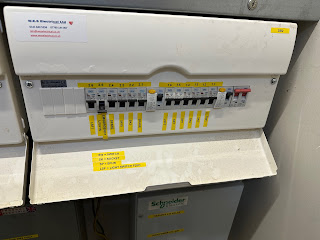 |
| EICR Renfrew |
Understanding EICR Certificates in Glasgow: A Comprehensive Guide
As a property owner or landlord in Glasgow, ensuring the safety of your electrical installations is paramount. This is where the Electrical Installation Condition Report (EICR) comes into play. An EICR is a formal document produced following an assessment of the electrical installations within a property. Here’s everything you need to know about EICR certificates in Glasgow.
What is an EICR Glasgow?
An EICR, or Electrical Installation Condition Report, is a detailed report that assesses the safety and condition of a property’s electrical systems. The main purpose of an EICR is to:
- Identify potential electrical hazards.
- Ensure compliance with current safety standards.
- Provide recommendations for improvements or necessary repairs.
- Maintain electrical safety to prevent accidents like fires and electric shocks.
Why is an EICR Important?
- Legal Requirements: For landlords in Glasgow, having a valid EICR is a legal obligation. The Scottish Government mandates that rental properties must have an EICR carried out at least every five years or upon change of tenancy.
- Safety: Regular inspections help identify and rectify potential electrical hazards, ensuring the safety of tenants and property occupants.
- Insurance: Many insurance companies require an up-to-date EICR as part of their coverage conditions. Failure to comply can result in claims being denied.
- Peace of Mind: Knowing that the electrical installations are safe and up to standard provides peace of mind to landlords and tenants alike.
What Does an EICR in Glasgow Involve?
During an EICR, a qualified electrician will conduct a thorough inspection of the property’s electrical system. This includes:
- Visual Inspection: Checking the overall condition of electrical installations, such as wiring, sockets, and switches.
- Testing: Conducting various tests to assess the safety and functionality of the electrical circuits.
- Report Generation: Documenting any issues found, categorizing them by urgency, and providing recommendations for remedial action.
Understanding EICR Codes
The findings in an EICR are categorized using specific codes to indicate the severity and urgency of any issues:
- Code C1 (Danger Present): Immediate action required to make the installation safe.
- Code C2 (Potentially Dangerous): Urgent remedial action needed to prevent future danger.
- Code C3 (Improvement Recommended): Non-urgent improvements that could enhance safety.
- FI (Further Investigation Required): Additional investigation needed to determine safety.
How to Obtain an EICR in Glasgow
- Hire a Qualified Electrician: Ensure the electrician is registered with a recognized body such as NICEIC or SELECT.
- Schedule the Inspection: Arrange a convenient time for the inspection, which can take a few hours depending on the property's size and condition.
- Review the Report: Once the EICR is completed, review the findings and address any issues highlighted in the report.
Cost of an EICR in Glasgow
The cost of an EICR can vary depending on several factors, including the size of the property and the complexity of the electrical installations. On average, you can expect to pay between £100 and £250 for a standard EICR in Glasgow. It's advisable to obtain quotes from multiple electricians to ensure competitive pricing.
Conclusion
An EICR is an essential aspect of property management in Glasgow, ensuring both compliance with legal requirements and the safety of electrical installations. Regular inspections not only protect tenants but also provide landlords with peace of mind, knowing their properties are safe and up to standard. If you’re a landlord or property owner in Glasgow, don’t overlook the importance of obtaining a valid EICR certificate.
For more information and to schedule an EICR inspection, consider reaching out to local certified electricians or consulting resources provided by the Scottish Government on electrical safety standards.
No comments:
Post a Comment